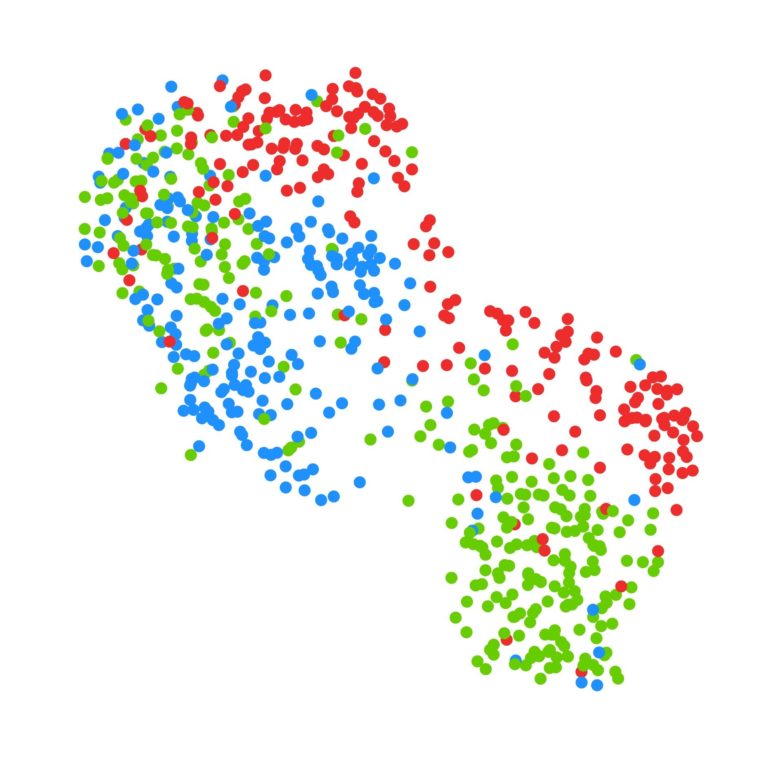A study coordinated by Luís Graça, principal investigator at the Instituto de Medicina Molecular João Lobo Antunes (iMM; Portugal) and Professor at the Faculty of Medicine of the University of Lisbon (FMUL) used lymph nodes, tonsils and blood to show how the cells that control production of antibodies are formed and act. The results, published in Science Immunology, unveil key aspects about the regulation of antibody production, with significant importance for diseases where antibody production is dysregulated such as autoimmune diseases or allergies.
In the last few months, the importance of vaccine-induced antibody protection against infections like COVID-19 has become clear. However, it has been very difficult to study the human cells involved in the production of antibodies after vaccination, as this process takes place in the lymph nodes and not in the blood. To study this process, it was necessary to use emerging technologies for the sequencing and identification of genes in each individual cell. “To understand the power of this technology, we must note that all of our cells have the same genes. However, a cell like a lymphocyte uses a different combination of genes compared to a neuron. Thus, after vaccination, when a lymphocyte starts the process of controlling the production of antibodies, it will turn on some genes and turn off others. This is what we studied for hundreds of cells simultaneously,” explains Luís Graça.
The difficulty of the process can be appreciated if we remember that about 20 years ago the sequencing of the human genome required a large group of laboratories in several countries benefiting from a series of further developments for over 10 years. Now, this sequenced genome is available for scientists to study the activity of genes in hundreds of independent cells. Something that would have been impossible a few years ago. Saumya Kumar, the first author of the work, says: “When the study started four years ago, we did not have the experimental tools needed and the advances in technology have been extraordinary. Using omics technology offered an incredible solution to this problem and we ended up using it.”
The information thus obtained allowed the researchers to study, in great detail, the genes and molecules involved in regulating the production of antibodies. In this way, a wide range of opportunities open up to attempt the manipulation of some of these molecules for enhanced production of antibodies in vaccines, or to decrease the production of antibodies in diseases caused by them (such as autoimmunity or allergy).
Luís Graça says, “When the biological systems of our organism are not properly regulated, disease arises. It is the knowledge of the organism’s regulation that allows to correct these pathological situations restoring the healthy balance of a well regulated system.”
This study also demonstrates that science has no boundaries: the group at iMM includes scientists from different nationalities, with different skills, from clinicians to bioinformaticians.
New type of blood cells work as indicators of autoimmunity
More information:
S. Kumar el al., “Developmental bifurcation of human T follicular regulatory cells,” Science Immunology (2021). immunology.sciencemag.org/look … 6/sciimmunol.abd8411
Provided by
Instituto de Medicina Molecular
Citation:
How the production of antibodies is regulated, one cell at a time (2021, May 28)
retrieved 28 May 2021
from https://medicalxpress.com/news/2021-05-production-antibodies-cell.html
This document is subject to copyright. Apart from any fair dealing for the purpose of private study or research, no
part may be reproduced without the written permission. The content is provided for information purposes only.



